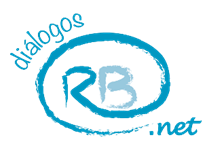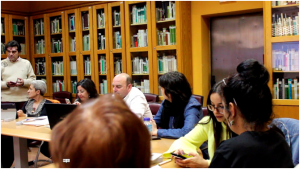RESULTS OF THE DIALOGOSRB.net PROJECT. Practical knowledge for sustainable development
 DiálogosRB.net is a knowledge network attached to the Spanish Network of Biosphere Reserves (RERB). It is made up of the Biosphere Reserves (or BRs) of Área de Allariz, Alto Bernesga, Montseny, Sierra de las Nieves and Lanzarote. The results stem from the networked collaboration of, on the one hand, these BRs’ managers and technicians, scientists from several universities and BR experts who make up the DiálogosRB.net team and, on the other hand, other external participants.
DiálogosRB.net is a knowledge network attached to the Spanish Network of Biosphere Reserves (RERB). It is made up of the Biosphere Reserves (or BRs) of Área de Allariz, Alto Bernesga, Montseny, Sierra de las Nieves and Lanzarote. The results stem from the networked collaboration of, on the one hand, these BRs’ managers and technicians, scientists from several universities and BR experts who make up the DiálogosRB.net team and, on the other hand, other external participants.
The knowledge that comprises DiálogosRB.net was obtained through the analysis of five sustainable development experiences carried out in the biospheres mentioned above. The network began to work in early 2017 within the project team. It developed further with an expansion of the information about the land and went on to enable open networking with external participants. In addition to the 17 team members, a further 38 people have participated in the network by contributing complementary information about their experiences, debating the proposed discussion topics or applying the project materials to university teaching practice activities.
Miren Onaindia, coordinator of the UNESCO Chair on Sustainable Development and Environmental Education of the University of the Basque Country (UPV/EHU), is part of the DiálogosRB.net team and, the basis of the project has been involved in some of the Chair’s activities.
BRs are areas commited to resource conservation and population development, as declared by UNESCO within the framework of the MAB Programme (Man and Biosphere). One of their aims is to apply sustainable development models in a range of social, economic and environmental situations.
The collaborative nature of this initiative has been present since its beginnings, as a result of an agreement between the bodies responsible for the five BRs and the Ramón González Ferreiro Foundation in Allariz. Likewise, the technical team has been working with a knowledge-sharing method, with each member contributing the most relevant aspects of their experience toward the common goal.
The initiative has had economic support from the Biodiversity Foundation and from the Ministry of Agriculture and Fishing, Food and the Environment.
The results include, in addition to other informative documents with a narrower scope, the following documents:
- Detailed description of the five sustainable development experiences studied
- Summary of practical knowledge for sustainable development
- Scientific article on Analysis of the Adaptive Cycle in Biosphere Reserves
- Evaluation of the participative research process results
- Conclusions of the open days on sustainable development, held online from 7 to 15 November 2017.
- University teaching use and recommendations for teaching applications of the DiálogosRB.net materials
- Analysis of the applied method for shared knowledge construction
The potential recipients of DiálogosRB.net’s results are all people interested in the practical application of sustainable development, in its various aspects: development planners, scientists and academics and, in particular, development professionals and trainers of sustainable development professionals.
The principal purpose of the DiálogosRB.net project is to contribute to the inclusion of sustainability criteria in development, providing elements of training and reflection to all those involved in its practical application. The results may contribute content and suggestions to any discussion platform on development models compatible with the Sustainable Development Goals (or SDGs) of the United Nations’ 2030 Agenda. There are two key focal points in the project’s contents: the need to produce sustainable rural development models that are adapted to current needs, and the urgent need to train skilled professionals to drive patterns of sustainable development in distinct situations.
The results documents of the network’s work are accessible through the project’s website (DialogosRB.net or DialogosRB.es).
 Team workshop
Team workshop


